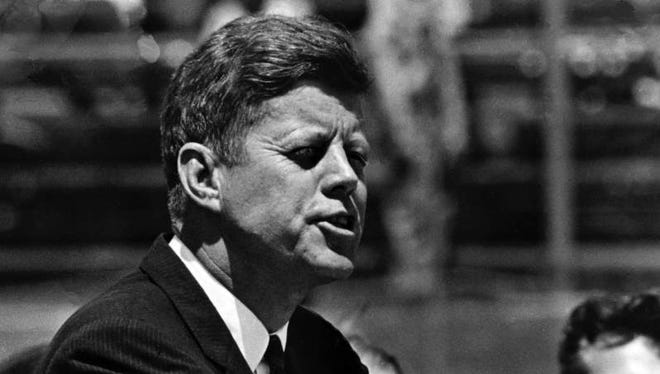Kennedy-Nixon debates were civil — unlike today

WASHINGTON – Al Gore Sr. had lots of advice for John F. Kennedy when the young Massachusetts senator faced Richard Nixon during the presidential debates of 1960.
“Stare at Nixon. This makes him nervous,” Gore wrote in a memo to Kennedy before one of the four debates.
“Try to simplify, or clarify answers somewhat,” Gore suggested.
“Don’t call Nixon a liar, but be quick to point out inconsistencies,” he warned, a recommendation that sounds a bit quaint given the nastiness of the current presidential race.
The Kennedy-Nixon debates, the first televised presidential debates in U.S. history, were far more civil than this year’s brutal showdowns between Democrat Hillary Clinton and Republican Donald Trump.
In their second debate last week, Trump repeatedly branded Clinton a liar, called her the devil and even threatened to throw her in jail. Clinton questioned Trump’s fitness for office.
More ugliness is expected when they meet for their final debate on Wednesday in Las Vegas.
“We’ve come a long way from ‘don’t call your opponent a liar,’” said Kent Syler, a political scientist at Middle Tennessee State University.
One thing hasn’t changed: Expect the unexpected whenever presidential candidates share the stage.
Kennedy, in particular, understood the importance of televised debates and wanted to be ready for whatever Nixon threw his way. To help him prepare, he asked Gore, at the time a U.S. senator from Tennessee and the father of future Vice President Al Gore Jr., to head a group that would advise him on debate strategy.
Although the group was secret at the time, its role in the debates has been known for years. Gore himself talked about his involvement in the debate prep during a 1964 oral history interview for the John F. Kennedy Library.
Memos and other documents discovered a couple of years ago by Syler and other officials at MTSU’s Albert Gore Research Center shed further light on Gore’s role.
In page after page, Gore spelled out the issues that might be raised during the debates, including civil rights, education, the cost of living and the federal farm program. He outlined Nixon’s position on each issue and Kennedy’s possible response.
Gore also offered helpful debate tips to the telegenic young senator.
“Do not try to discuss topics in detail,” he suggested. “Keep hammering away. Sooner or later Nixon will feel the pressure and begin to make mistakes.”
Earlier this year, Syler decided to see how much of Gore’s advice Kennedy actually followed, so he watched tapes of the Kennedy-Nixon debates. One exchange in particular stood out.
The focus of the first debate was domestic policy, but Gore warned that Nixon might mention that Soviet Premier Nikita Khrushchev was in New York and try to use that to score points.
Kennedy beat Nixon to the punch. He got the debate’s first opening statement and, in his remarks, quickly pivoted to Khrushchev’s visit.
“We discuss tonight domestic issues, but I would not want … any implication to be given that this does not involve directly our struggle with Mr. Khrushchev for survival,” Kennedy said. “Mr. Khrushchev is in New York, and he maintains the Communist offensive throughout the world because of the productive power of the Soviet Union itself.”
In his memo to Kennedy, Gore also had warned that “Russians are graduating engineers, scientists, etc.”
Kennedy echoed that point in the first debate. “I’m not satisfied when the Soviet Union is turning out twice as many scientists and engineers as we are,” he said.
Kennedy himself acknowledged Gore’s role in prepping him for the debates. On Oct. 25, 1960, just four days after the fourth and final debate, the future president sent Gore a telegram thanking him for his suggestions.
“The course of action which you outlined will profit me in the campaign,” Kennedy said.
Michael Collins is the Washington correspondent for the USA Today Network-Tennessee. His weekly Tennessee in D.C. column highlights Volunteer State lawmakers, causes and connections. Contact him at 703-854-8927 or mcollins2@gannett.com.